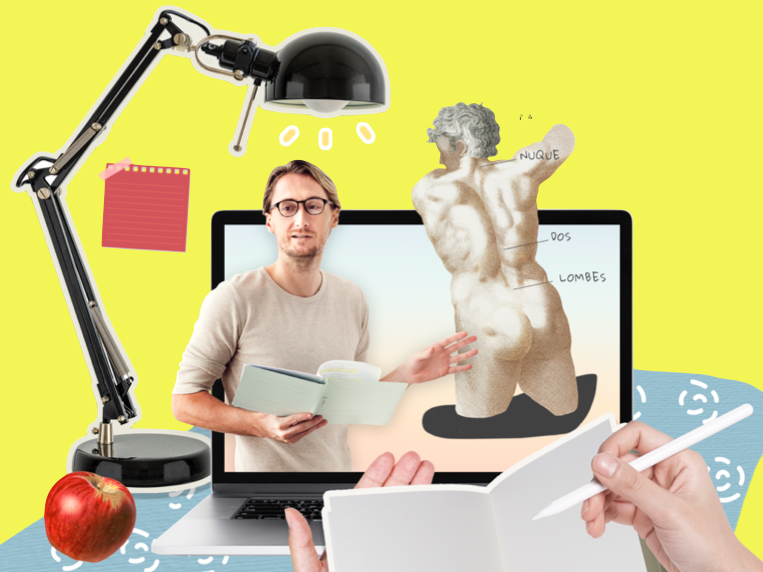
The thing is I’m constantly learning.
So, my ideas come from a lot of places. They come from documentaries, books, online courses, journal articles, the media, being out in the world and interacting with different people and places, audiobooks, and podcasts (just to name a few).
Every day, I set aside time to learn something new. Some days it will just be 15 minutes but I figure, it’s something. And learning something is always better than learning nothing.
Thanks to learning a little bit each day, I’m not the same person I was 10 years ago or even 10 days ago!
What I usually find is when I learn about a new topic, some aspect of my life improves. My mental landscape transforms. I experience a mindshift.
In her book Mindshift: Break through obstacles to learning and discover your hidden potential Dr Barbara Oakley states a mindshift is a deep change in life that occurs thanks to learning. That change can result from learning new skills or changing careers but also from changing your attitudes and relationships.
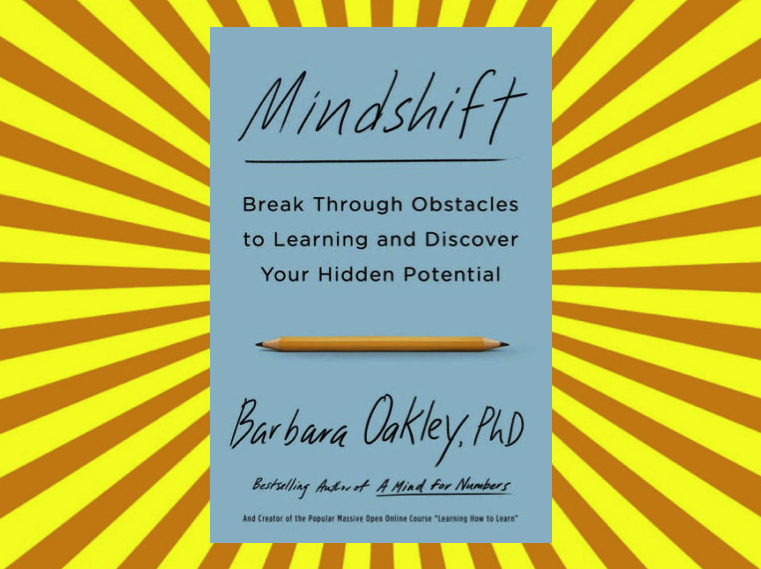
The thing is you’re never too young or old to experience a mindshift. You also don’t need to spend a lot of money (if any) to do so.
You see, there is no shortage of free or cheap information available online.
The challenge is sifting through all that information to find the good stuff.
The challenge is making the time to learn how to learn and deeply learn that information.
The challenge is getting comfortable with experiencing discomfort as you try to learn.
But becoming a lifelong learner is well worth the time and effort. Through the process of showing up to learn new things, you become more agile and mentally flexible. Life becomes more interesting and you do, too.
If you want to learn new things without formally enrolling in a university degree, here are my top tips for being a lifelong learner on a budget.
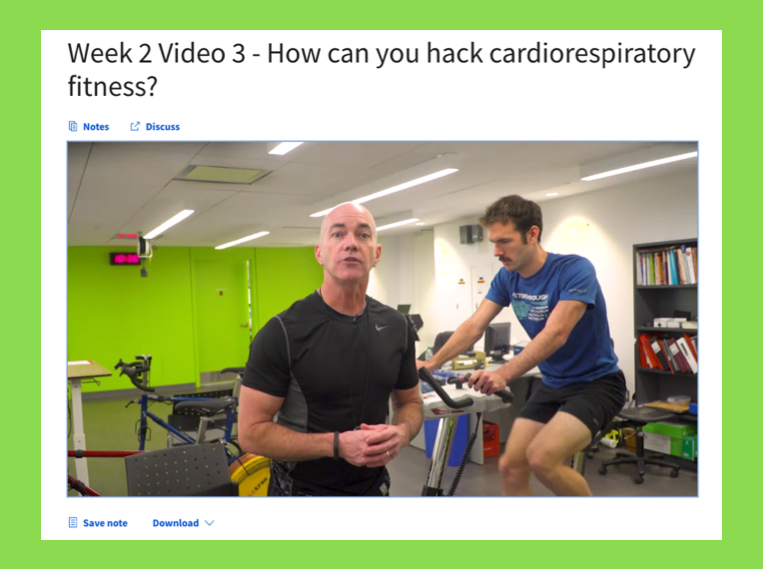
Thanks to the world of MOOCs, you can study at some of the best universities around the world without having to leave the comfort of your own home and spend any money.
To access MOOCs, you’ll need to have Internet connection, a notepad and pen. But that’s about it.
I recently participated in a fabulous free MOOC from McMaster University called Hacking Exercise for Health. This four week course was delivered by two exercise physiologists Dr Martin Gibala and Dr Stuart Phillips.
The course was packed full of cutting edge research on how to optimise cardio and resistance training as well as lots of practical tips. By the end of the course, I was able to devise my own workout programs.
This created a mindshift. How? Instead of paying a personal trainer to devise my workouts and paying for an expensive gym membership, I can now be my own trainer at home. This MOOC has just saved me a lot of money.
How can you find MOOCs that are a good match for you?
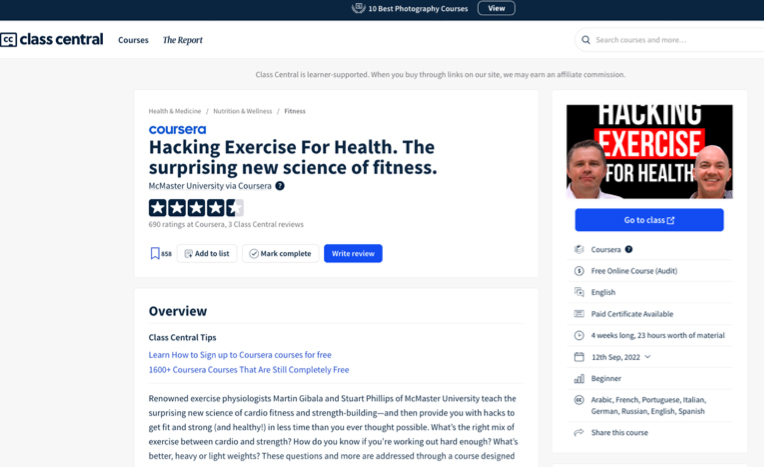
I recommend checking out Class Central. This is a website that provides ratings, reviews, and information on MOOCs. It will help you to select a MOOC that will best fit your needs.
If I’m interested in an expert’s work, I will check out their website. An academic’s website lists all their published academic papers but it also usually lists podcasts, books, talks, and radio interviews they have done.
For example, Dr Barbara Oakley’s website contains links to her upcoming public events, research papers, books, talks, and media appearances (e.g., podcasts and radio interviews).
If you find the person’s academic papers challenging to read, start by exploring interviews they’ve done and videos of their talks.
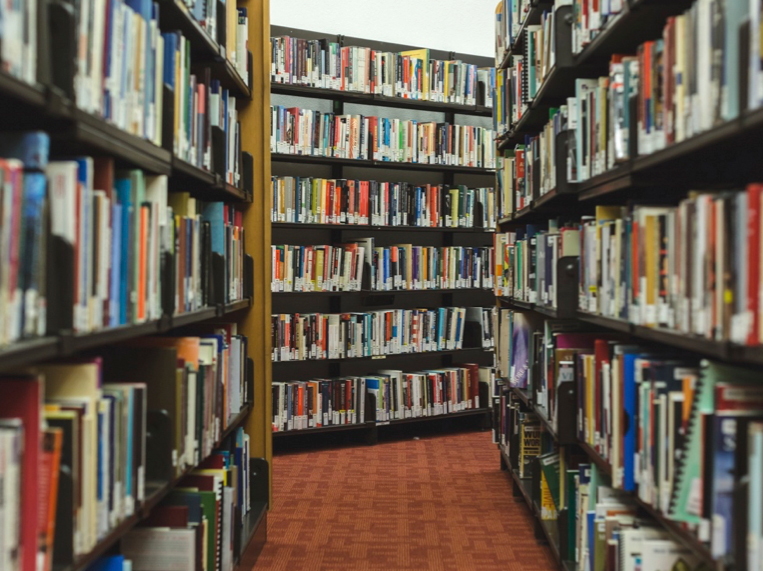
Books can change your life for the better. And libraries are full of life changing books that you can access for free.
I frequently go on book binges at my local library where I max out my library card. What have I got to lose?
If I don’t like a book, I can just stop reading it and move onto reading something else. At the end of the day, it costs me nothing.
If a book isn’t in your local library collection, ask the librarian if they can order it in on inter-library loan. You can also see if they will consider purchasing the book for their library collection (hey, there’s no harm in asking).
Over the last few years, I have saved hundreds of dollars as a result of my local library purchasing books that I have requested.
University libraries contain books that you wouldn’t normally find in your local community library. Anyone can go into a university library and look at the books.
Depending on the rules, you may not be able to take out a book, but you can photocopy a section from it or find a comfortable chair and start skim reading.

I recently decided I wanted to start running to improve my fitness. But I had no idea where to start. I hadn’t run long distances since doing cross country at school! I thought perhaps Reddit may have some useful ideas and advice.
On Reddit, I found several threads where people shared great advice, tools, and strategies for beginner runners (e.g., C25K program, run one song and then walk one song, useful stretches to do before you head off on a run, timer interval apps, etc).
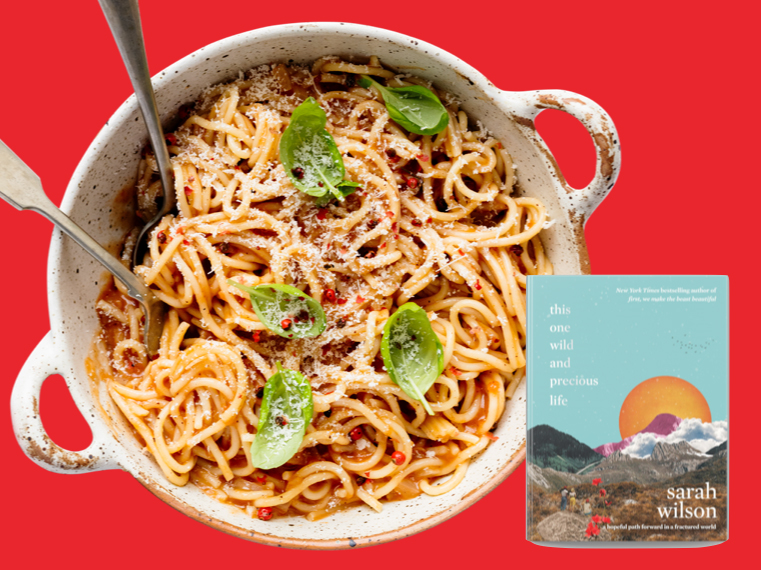
Before Covid hit, a group of friends and I would meet for dinner to discuss issues relating to the climate crisis. We would select an article or book to read before the dinner. Then, everyone would bring a dish to share and the reading material would form the basis for the dinner discussion.
These dinners were a nice way to connect with my friends on a topic that we were all concerned about. They also provided extra motivation to learn about challenging topics. If I’m hosting a dinner discussion, I better have read the article or book before my friends arrive!
Due to Covid concerns, my friends and I haven’t had a dinner discussion in a little while. But as the weather warms up, I’m hoping to host one of these events outside. There’s also the Covid safe option of meeting on Zoom.
There is no shortage of information or opportunities to expand your world through learning. Like anything in life, it’s about prioritising what’s important to you. Could you spend 20 minutes a day or one hour a week learning something new? And what would your life be like in 6 months’ time if you did?
Share This:
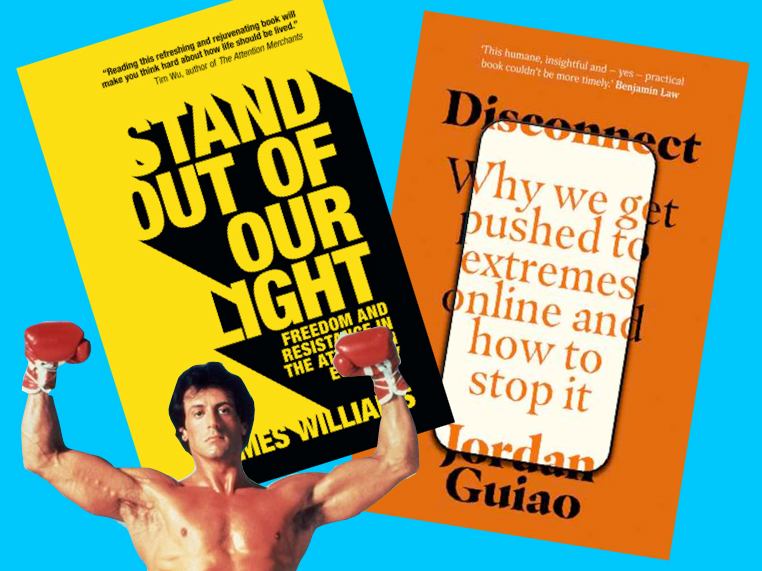
I read some absolute gems.
I’m a firm believer that a good book can change your life. This is why I make time to read every day.
As Australian actor Francis Greenslade advises in his book How I Learnt to Act:
“Read novels and plays and poetry. Read everything. I can’t stress this enough. Reading gives you so, so much. The more you read, the more new ideas you absorb, and the more new situations you experience . . .
The more you read, the greater your powers of concentration. What’s even more beautiful about reading is that it puts you into the head of someone else. It forces you to abandon your view of the world and take on anothers. In other words reading gives you empathy . . .
And it’s never too late to start. Read a book and you’ll become a better actor. But Snapchat and glossy magazines and online games – they don’t give you anything.”
1. Dopamine Nation: Finding Balance in the Age of Indulgence by Dr Anna Lembke
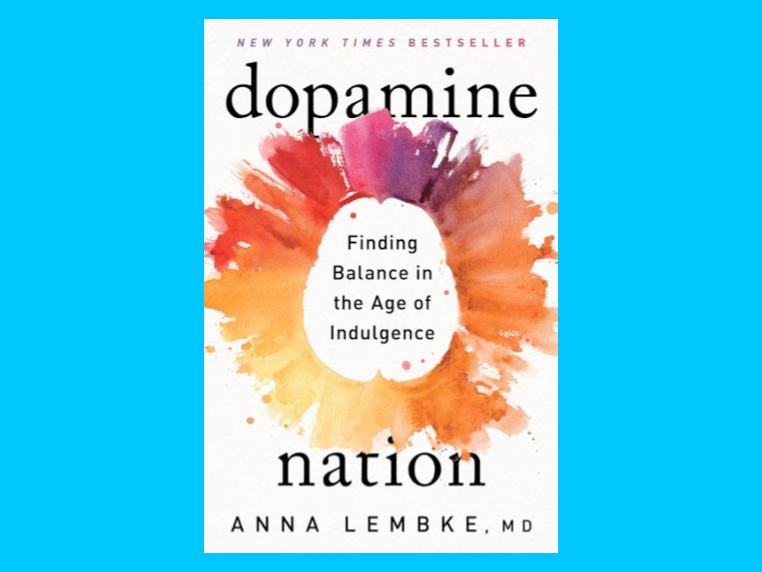
In Dopamine Nation Psychiatrist Dr Anna Lembke argues that in the modern world most of us are running from pain. Whether we’re numbing ourselves with drugs, bingeing on Netflix, gambling, or compulsively shopping online, we’re “distracting ourselves from ourselves”. Lembke states:
“The reason we’re all so miserable may be because we’re working so hard to avoid being miserable.”
Dr Lembke shows readers a path to living a more authentic and fulfilling life.
Spoiler alert: the good life isn’t about having whatever you want, whenever you want. It’s about embracing the discomfort of the present moment and giving our dopamine receptors a chance to regenerate.
2. Stand Out of Our Light: Freedom and Resistance in the Attention Economy by James Williams

Ex-Google strategist turned philosopher James Williams has written a brilliant book on the importance of reclaiming your attention and fighting back against the persuasive techniques used by the attention economy (i.e., big tech companies).
This book helped me to clearly see that the goals of big tech companies are not aligned with my personal goals. These companies do not have our best interests at heart. Williams argues if you want to be truly free and reclaim your capacity to think, you need to extract yourself from these machines of industrialised persuasion.
3. Stolen Focus: Why You Can’t Pay Attention – and How to Think Deeply Again by Johann Hari
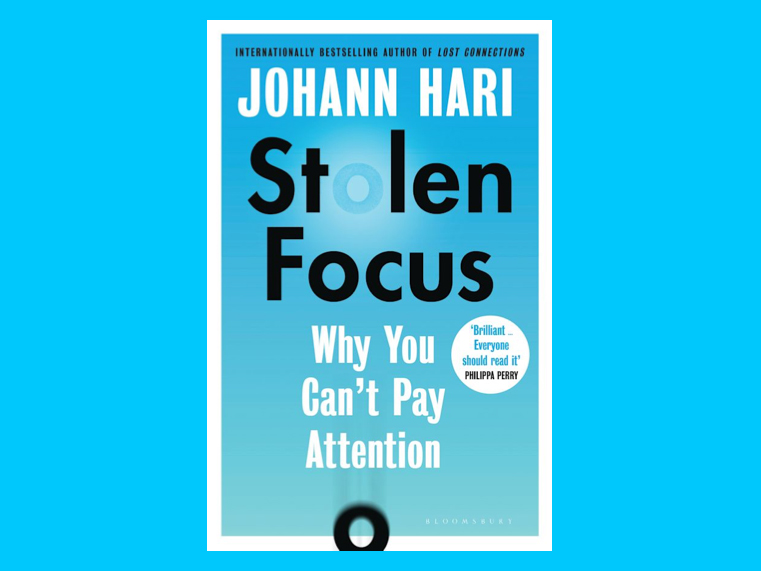
Johann Hari deserves an honorary doctorate for this literary masterpiece. In Stolen Focus, Hari travels the world interviewing experts to understand why our ability to focus has degraded and what can be done about it.
This is a complex, multipronged problem. Hari argues that we need systemic change to solve this crisis of attention (individual action won’t cut it). And this crisis of attention desperately needs our attention. If we stand any chance of solving the major issues we currently face (e.g., climate change), we need to build a social movement to reclaim our attention.
4. Mindful Self-Discipline: Living with Purpose and Achieving Your Goals in a World of Distractions by Giovanni Dienstmann

Being self-disciplined is the key to achieving your goals. But with just one click, you can get sucked into a world of instant gratification. How can you cultivate greater self-discipline in the age of distraction?
Giovanni Dienstmann has thought deeply about this question. In Mindful Self-Discipline he explores the many aspects to cultivating self-discipline. Topics include avoiding the trap of easy dopamine, creating a focus-friendly environment, letting go of unfair comparisons, and cultivating time awareness. This is the best self-help book I have read in a long time. I highly recommend it.
5. Time Wise: Powerful Habits, More Time, Greater Joy by Dr Amantha Imber

I’m a little sceptical of most productivity and time management books, but I enjoyed reading this book by Dr Amantha Imber. It’s a collection of strategies gathered from her popular podcast ‘How I work’.
I particularly liked the strategies presented to deal with addictive technology.
Some of my favourite strategies included:
• Putting rubber bands horizontally across your phone screen: this acts as a physical barrier to checking your phone.
• Solitude deprivation: Having time to be alone with your thoughts (no inputs from technology). This involves planning when you want to receive inputs from your phone and other devices.
• Creating stopping cues: Social media companies use strategies to keep you scrolling and clicking. To combat features like the infinite scroll, you can create your own stopping cues (e.g., having a set time to log off).
6. Move the Body, Heal the Mind: Overcome Anxiety, Depression, and Dementia and Improve Focus, Creativity, and Sleep by Dr Jennifer Heisz by Dr Jennifer Heisz
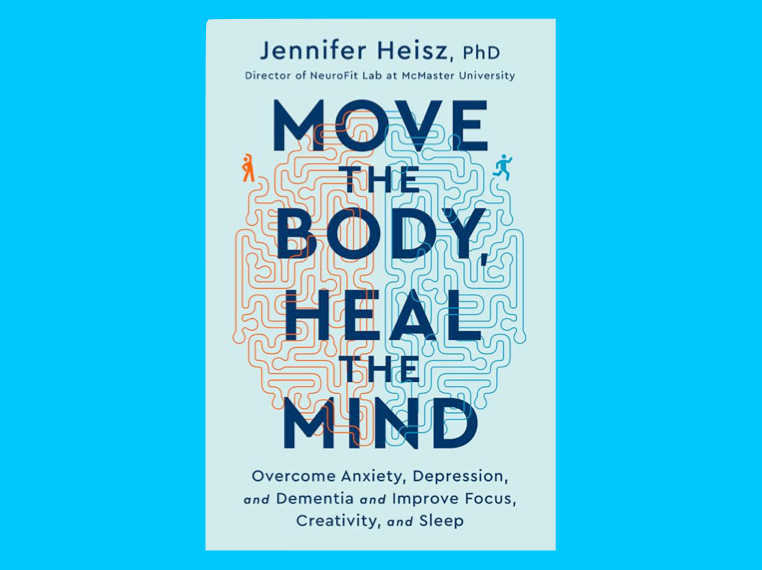
Over the years I’ve read a lot of books on the benefits of exercise but this book tops the list!
Neuroscientist Dr Jennifer Hiesz does a superb job presenting the science behind what exercise does for brain health, mental health, and preventing dementia.
Reading this book was like having a light bulb go off in my head. It gave me a deeper appreciation of exercise and how it has helped me to reduce anxiety, keep depression at bay, enhance my focus, and get through challenging times.
7. Disconnect: Why We Get Pushed to Extremes Online and How to Stop it by Jordan Guiao
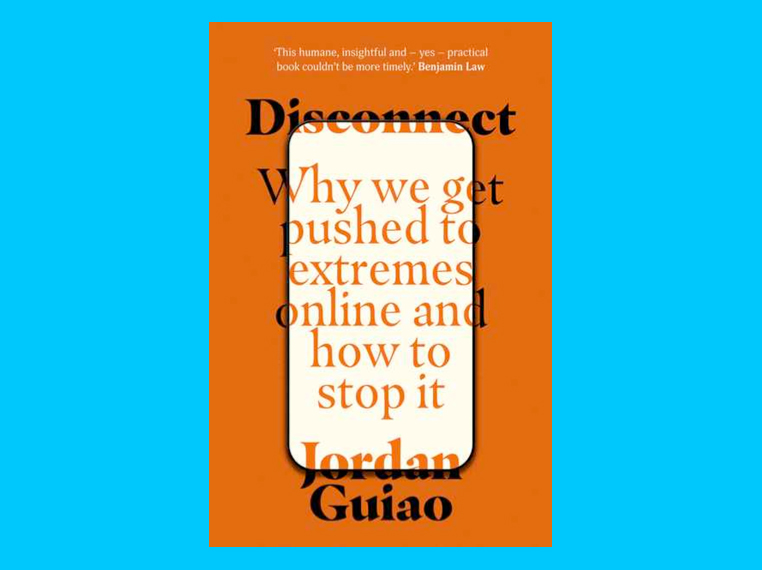
This year I have had more conversations with people who believe in conspiracy theories than in the previous 10 years of my life. It’s alarming. How did we get here?
If you know someone who has fallen down conspiracy theory rabbit holes, this book will help you understand how this happens and what you can do to help your loved ones. Guiao also explores a number of other Internet related issues including social media narcissists, naïve futurists, hateful trolls, and dating app pests.
So, there you have it! Those are my favourite nonfiction books for 2022. They were packed full of life changing strategies and wisdom. I’m grateful to these authors for sharing their ideas with the world.
What books did you enjoy reading this year?
I’d love to hear your recommendations.
Dr Jane Genovese delivers interactive sessions on learning to learn, combating procrastination, exam preparation, how to focus in the age of distraction, habit formation and much, much more!
Get FREE study and life strategies by signing up to our newsletter:
© 2024 Learning Fundamentals